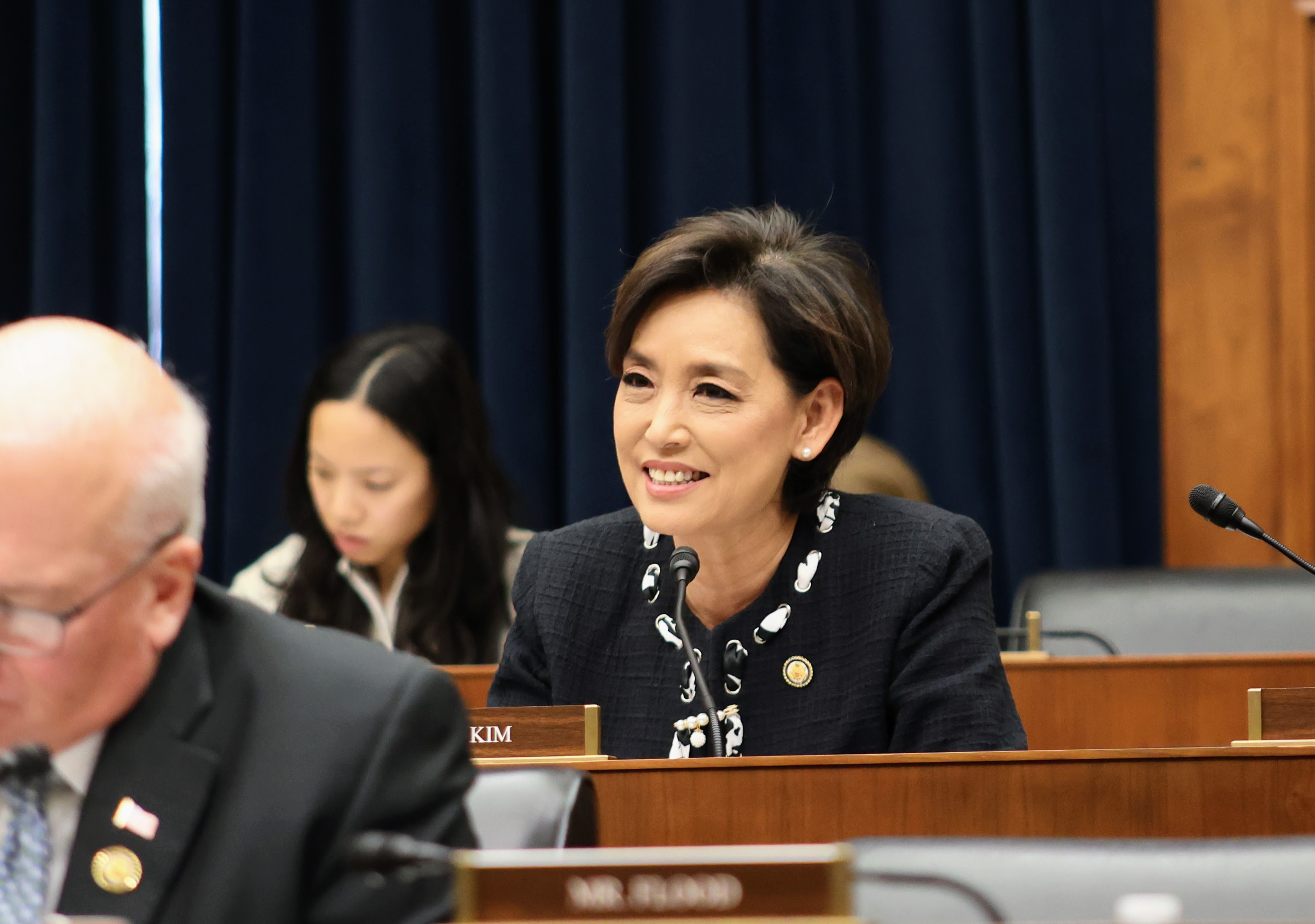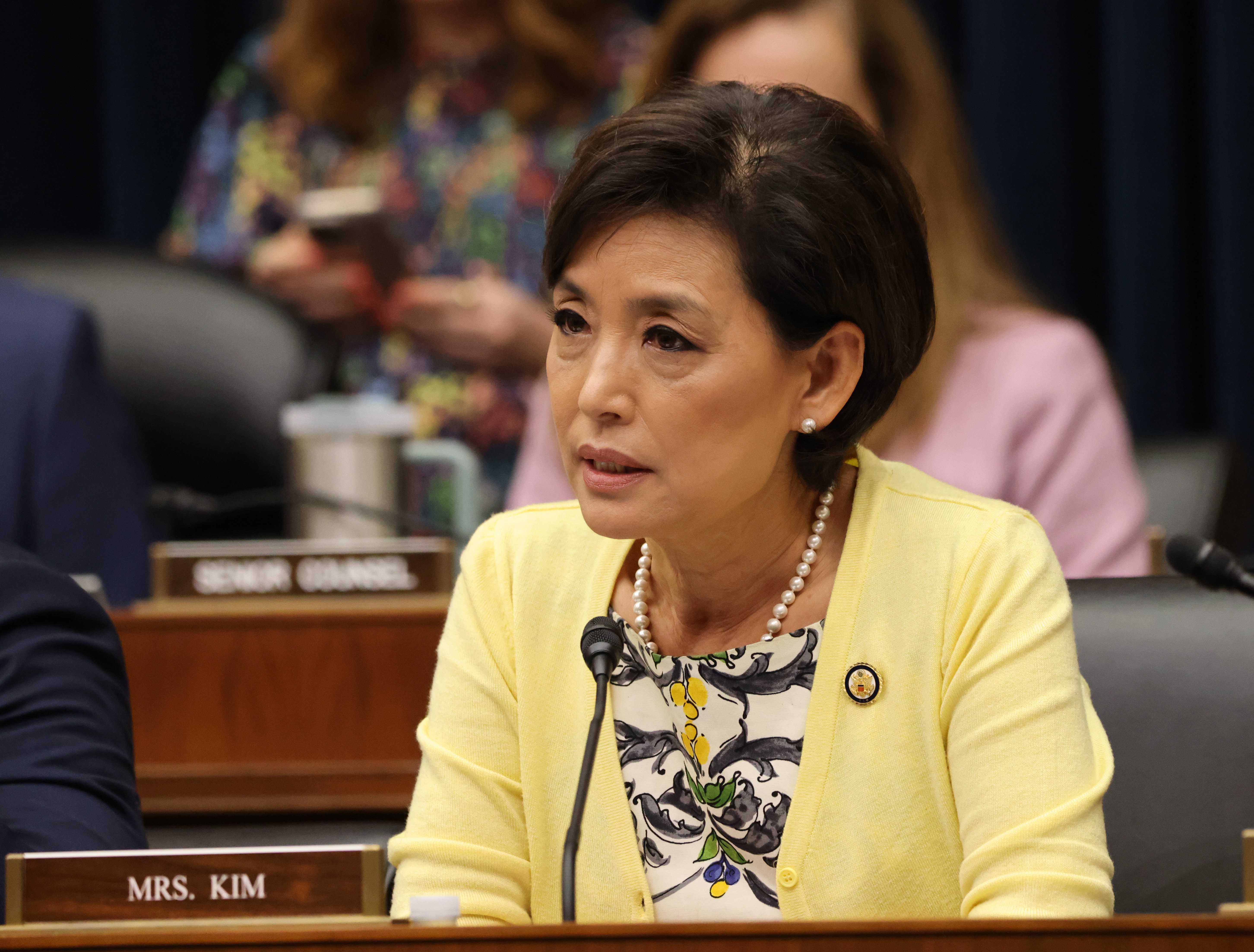In a speech heavy on popular culture references and memorializations of the United States’ decadeslong alliance with his country, South Korean President Yoon Suk Yeol laid out his vision to Congress of continued, growing economic ties and unity in the face of internal and external threats to global democracy.
“Today, our democracy is at risk. Democracy is the community’s political decision making system to protect freedom and human rights. Such a decision making must be based in truth and freely formed public opinion,” Yoon said, addressing a joint meeting of both chambers of Congress on Thursday. “But today, in many parts of the world, false propaganda and disinformation are distorting the truths and the public opinion. They are threatening democracy.”
“Such totalitarian forces may conceal and disguise themselves as defenders of democracy or human rights, but in reality, they deny freedom and democracy. We must not be fooled by such deception and disguises,” Yoon continued.
Yoon framed the United States as “symbol of freedom and democracy,” opening his remarks with comments on the Constitution and discussing the “new world order based on free trade” established after World War II. He praised U.S. troops for their service in the Korean War as the 70th anniversary of the end of fighting approaches this summer.
“Sons and daughters of America sacrificed their lives to defend a country they never knew and a people they never met,” Yoon said, recounting the Battle of Chosin Reservoir, where U.S., British and South Korean troops were outnumbered 4-to-1 by Chinese and North Korean soldiers.
Drawing parallels to the human rights violations and aggression of North Korea, Yoon promised unwavering support to Ukraine in the face of Russian invasion.
“When North Korea invaded us in 1950, democracies came running to help us and we fought together and kept our freedom. The rest is history,” Yoon said, glossing over South Korea’s history of military dictatorships from the 1960s and into the 1980s. “Korea’s experience shows us just how important it is for democracies to uphold solidarity. Korea will stand in solidarity with the free world. We will actively work to safeguard the freedom of the people of Ukraine and support their efforts in reconstruction.”
In his remarks, Yoon pledged to continue his country’s strong stance against North Korea’s military and nuclear threats, but said if his northern neighbor agreed to rolling back its nuclear missile program, he would embrace negotiations with Pyongyang.
“My government will respond firmly to provocation, while at the same time we will keep the door open for dialogue for North Korea’s denuclearization,” Yoon said. “Last year, I proposed an audacious initiative. It will significantly improve North Korea’s economy and livelihood. All Pyongyang has to do is stop its nuclear program and begin a substantive denuclearization process.”
“Korea, with the U.S., will continue to work for North Korea’s denuclearization,” he added, receiving a standing ovation.
On Wednesday, President Joe Biden and Yoon announced an arrangement between their two countries to better coordinate nuclear deterrence, including improved information sharing, visits by nuclear submarines to South Korean ports, and joint military operations. Biden pledged not to place nuclear weapons on the peninsula, however.
The two leaders also discussed increased economic cooperation and improving South Korea’s relationship with Japan.
“We need to speed up Korean, U.S., Japan trilateral security cooperation to counter increasing North Korean nuclear threat,” Yoon said in his speech on Thursday.
A career prosecutor who rose to prominence for his anti-corruption investigations into top South Korean officials, including two presidents, Yoon never held elected office until rising to the presidency in a narrowly contested election last year, according to the Center for Strategic and International Studies, a Washington, D.C., think tank.
An economic conservative, Yoon spoke of free trade and job creation, emphasizing the 10-year history of Korean immigration to the United States and heralding Korean American members of Congress as “a testament to the alliance spanning generations” that began with Korean laborers working on Hawaiian plantations.
He named all four Korean American members of Congress, emphasizing there were two for each party: California Republican Reps. Michelle Steel and Young Kim, and Democratic Reps. Andy Kim, of New Jersey, and Marilyn Strickland, of Washington.
Beyond the economic, diplomatic, and military ties, Yoon spoke of the cultural connections that bind the two countries, from the Korean exports of K-pop and the hit Netflix show “Squid Game,” to the American pop music and films like “Avengers” that “are loved by Koreans.”
“Nationality and language differences are no longer barriers,” Yoon said. “I also love ‘Top Gun: Maverick’ and ‘Mission Impossible.’ And even if you didn’t know my name, you may know BTS and BLACKPINK,” two K-pop groups.
Yoon, who sang a rendition of “American Pie” by Don McLean at a state dinner the night before his speech, conceded BTS might be more popular than him in the United States and noted they visited the White House last year to discuss anti-Asian hate.
“BTS beat me to the White House,” Yoon said. “But I beat them to Capitol Hill.”




